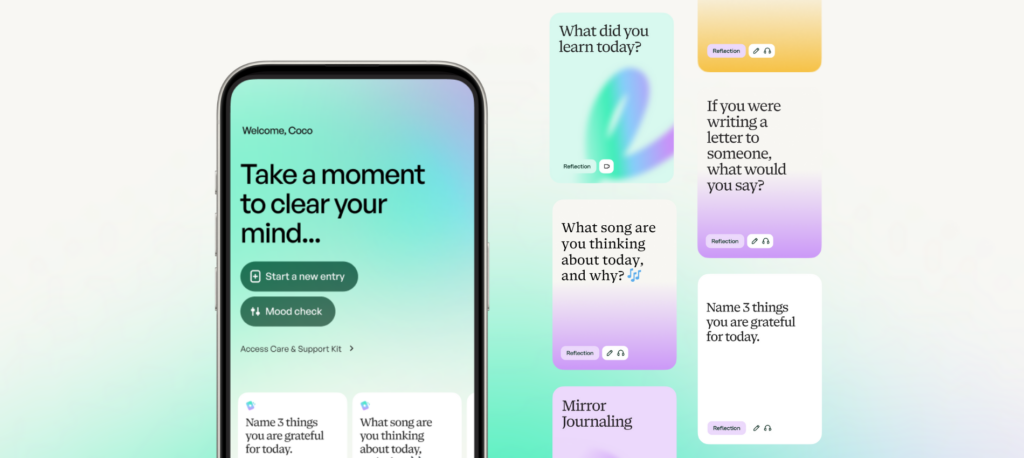Blog
The Future of Mental Wellness: Technology and Self-Reflection
March 4, 2025
At the Child Mind Institute, we’re committed to exploring how technology can support mental well-being, especially for teens. We believe that everyone can benefit from tools that promote self-reflection and emotional growth — and that these tools can serve both as standalone resources and complements to professional mental health care.
How Mirror Journal Helps
Mirror is a journaling app developed by the Child Mind Institute, designed with clinical input and grounded in child development research. It offers clinician-designed prompts and leverages AI to analyze journal entries, providing personalized feedback in a safe environment. Unlike generic journaling apps, Mirror is built on robust clinical research and tailored to the unique needs of young people.

Technology as a Complement to Therapy
Digital mental health apps like Mirror should be viewed as supportive tools, not a replacement for in-person therapy, especially for someone experiencing serious mental health concerns. However, technology can provide valuable support in several ways:
Increased Accessibility
Digital tools can break down barriers related to cost, stigma, and access to mental health professionals. Journaling apps like Mirror can be used anytime, anywhere, providing a consistent space for self-reflection, even in areas with limited mental health resources.
Support Between Sessions
Mirror can be used to enhance the support of formal treatment. For instance, it can be used between therapy sessions for documenting experiences, practicing skills, reflecting on things discussed in therapy, or to prepare for future sessions.
Customized Support
Mirror leverages AI to offer personalized feedback on journal entries, helping teens who struggle to identify their emotions or self-reflect. This AI-driven feedback is designed to enhance self-awareness in a safe and privacy-conscious way.
Promoting Self-Management
Digital tools can empower teens to cultivate their mental well-being by providing them with strategies for managing emotions, identifying triggers, and developing coping mechanisms. This sense of agency can be particularly important during adolescence.
Mirror provides a valuable bridge between formal treatment and everyday life, fostering continuous self-reflection and skill development.
Limitations and Responsible Use
Technology is just one piece of the puzzle. Not every teen will connect with journaling apps, and that’s okay — everyone’s different. These tools should be used thoughtfully as one piece of a broader mental wellness toolkit.
- Maintain Balance: Encourage teens to balance screen time with offline activities like going outside, engaging in hobbies, and connecting with peers face-to-face.
- Stay Vigilant: Parents and teens should choose apps that prioritize data privacy and security, like Mirror.
- Know When to Seek Help: For serious mental health concerns, in-person therapy or other professional support is essential. Resources for finding a mental health professional can be found here.
Digital tools can help teens practice self-reflection, build emotional skills, and manage mental health challenges in an accessible, convenient, and independent way.
Mirror ensures that all personal information is handled with the highest standards of privacy and security, and is fully compliant with COPPA, SOC-2, and CCPA regulations.
Download Mirror today and explore all of the Child Mind Institute’s digital resources here.
Download Mirror
Available on the App Store and Google Play Store.
Tagged with:
Media and Tech, Teenagers, Applied Digital Technologies, Mirror
Topic:
Screen Time & Technology
